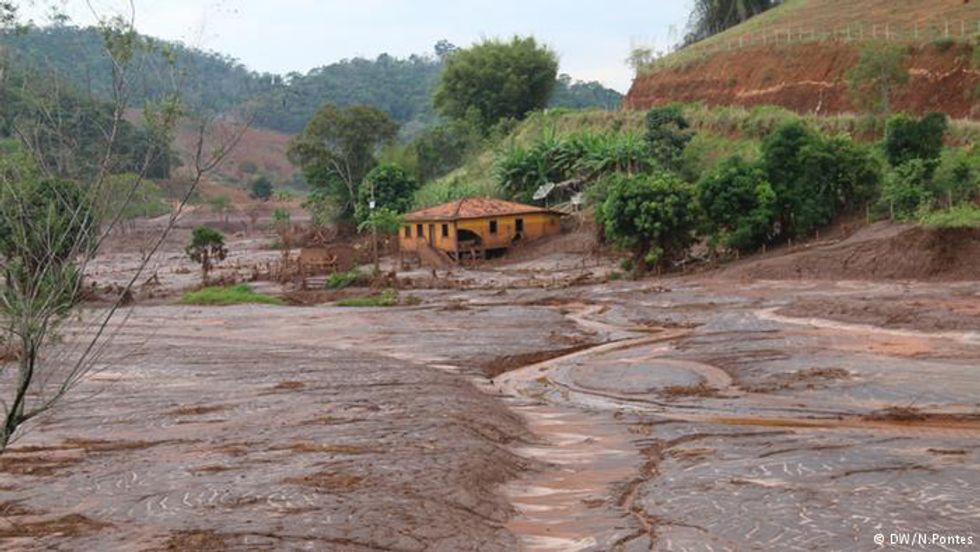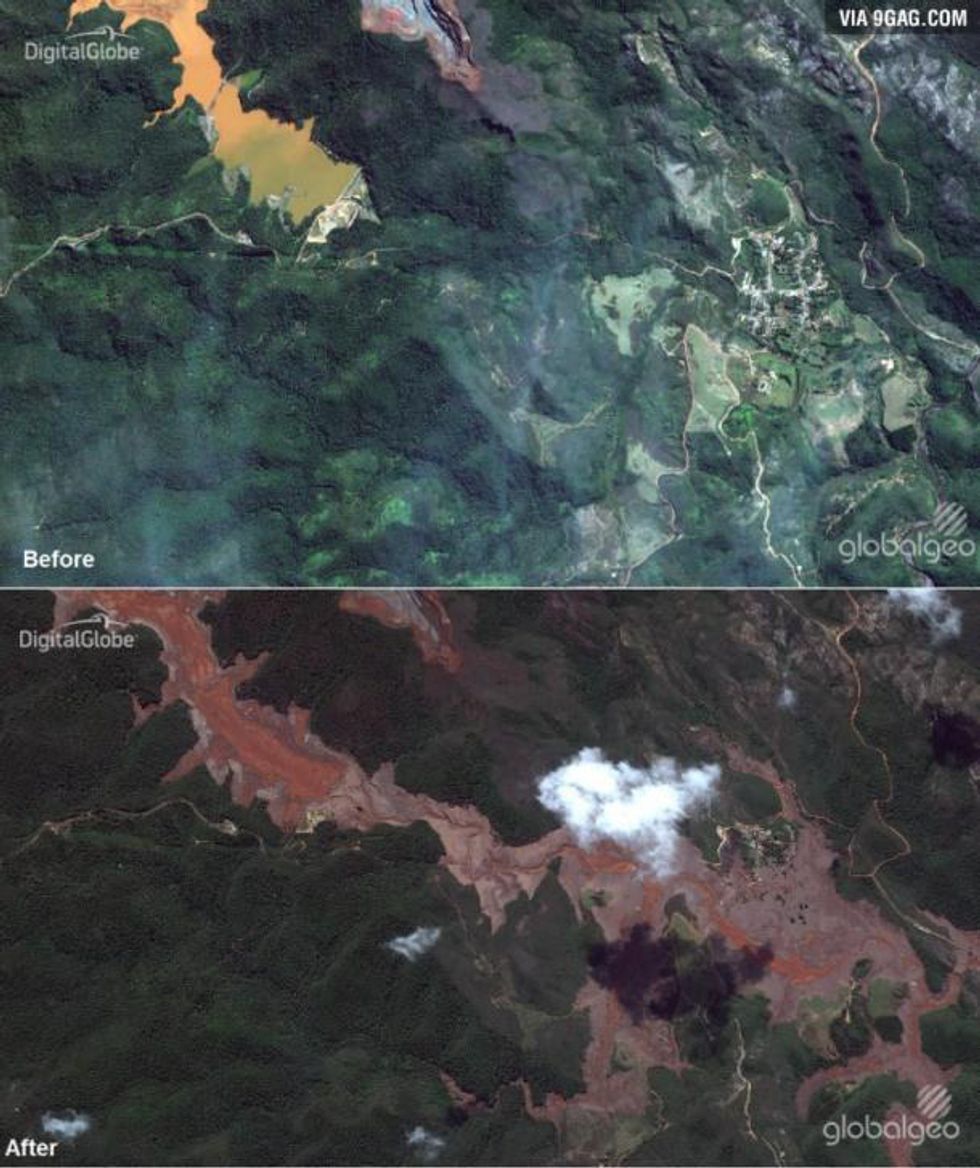In the past two weeks, Brazil has been facing one the worst environmental disasters in its history. On November 5, two dams at an iron-ore mine burst in the state of Minas Gerais causing mudslides that swept through villages and left a 500 kilometer stain (as of November 19), as Deutsche Welle reports.
The dams were waste-collection ponds at the Samarco mine which is operated under the collaboration of BHP Billiton, one of the world's largest mining companies, and Vale, a Brazilian company. Waves of mud crashed through the village of Bento Rodrigues, which is located southeast of Brazil's third largest city. Most of the village was destroyed immediately and dozens were swept away. Reports talked of one dead worker and over a dozen missing people in the days after the initial break.
Deutsche Welle reports that at least five settlements have been destroyed by the mud wave to date. The wave reached Rio Doce, a large river and important water source in Minas Gerais. Though Samarco claimed that there aren't any readily toxic substances in the mud, the stain can have catastrophic environmental consequences for the area. Immediate damage is seen in mass death of fish that can be a huge blow to fisheries and local ecosystems.
Samarco reportedly intends to "employ an organic agent" in the waters in order to "reduce the sediment load" which cannot be repurposed and is "utter waste," in the words of an environmental specialist on water body management. They are also attempting to stop the wave from reaching a hydroelectric power plant which has suspended its operations, as well as to place barriers that will prevent mud from reaching the Atlantic.
To make matters worse, the Rio Doce was already polluted by chemicals from industrial activities in the area and deforestation has caused a lot of silting. A professor of hydrological research commented that reforestation efforts could help alleviate the negative impacts in the long run, but soil contamination remains a big problem. Another current direct consequence of the disaster is the abandonment of many pets and domestic animals in the affected areas.
Samarco has admitted that two more dams might be in serious danger of rupturing. Should those dams break open as well, the magnitude of the environmental disaster would grow exponentially. A major concern the public holds is the lack of accountability on Samarco's part, as well as how lenient the government seems to be on the companies. Samarco will be pushed to pledge 250 million euros (1 billion reais or $265 million) to alleviating the damages, though environmental damages are still being evaluated. In the past, the company has already been fined five times. Many are questioning the adequacy and strictness of the laws applied to Samarco's business.
Videos on Facebook and by The Guardian show the shocking magnitude of the devastation.























